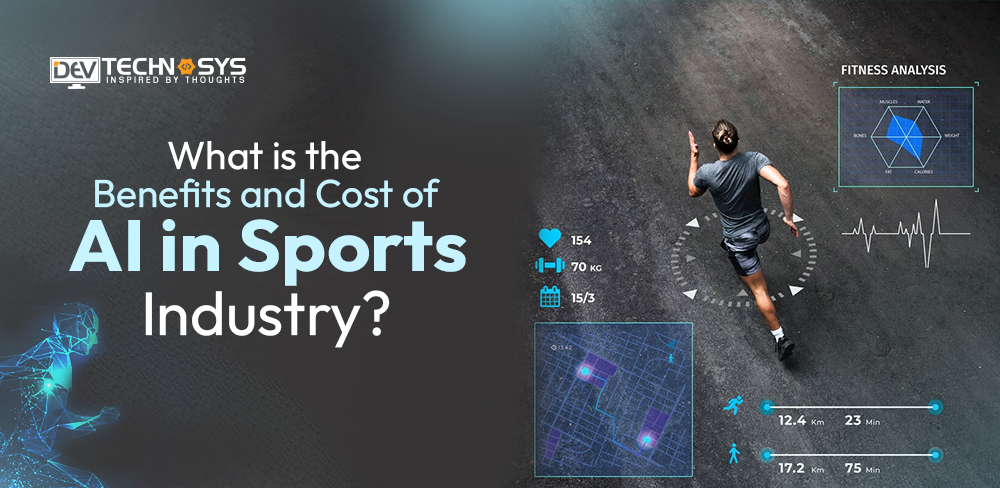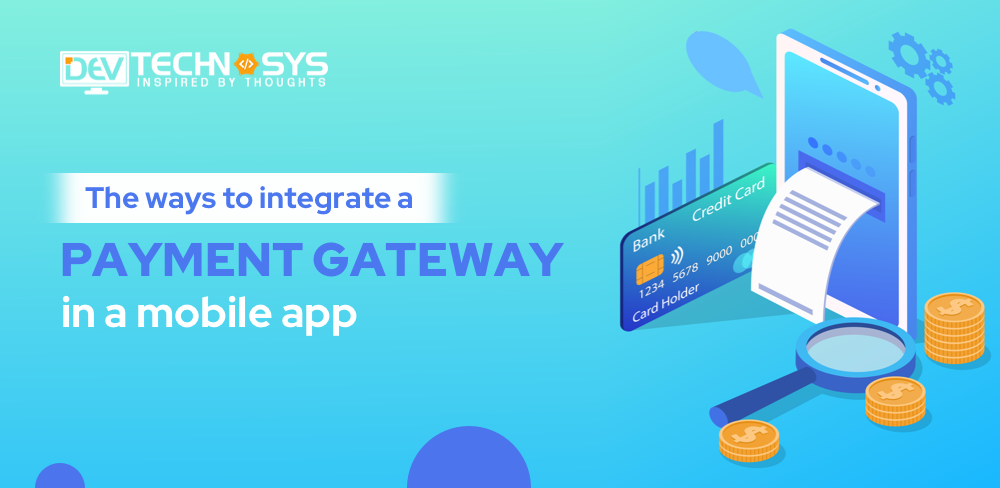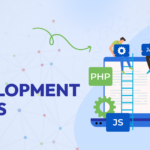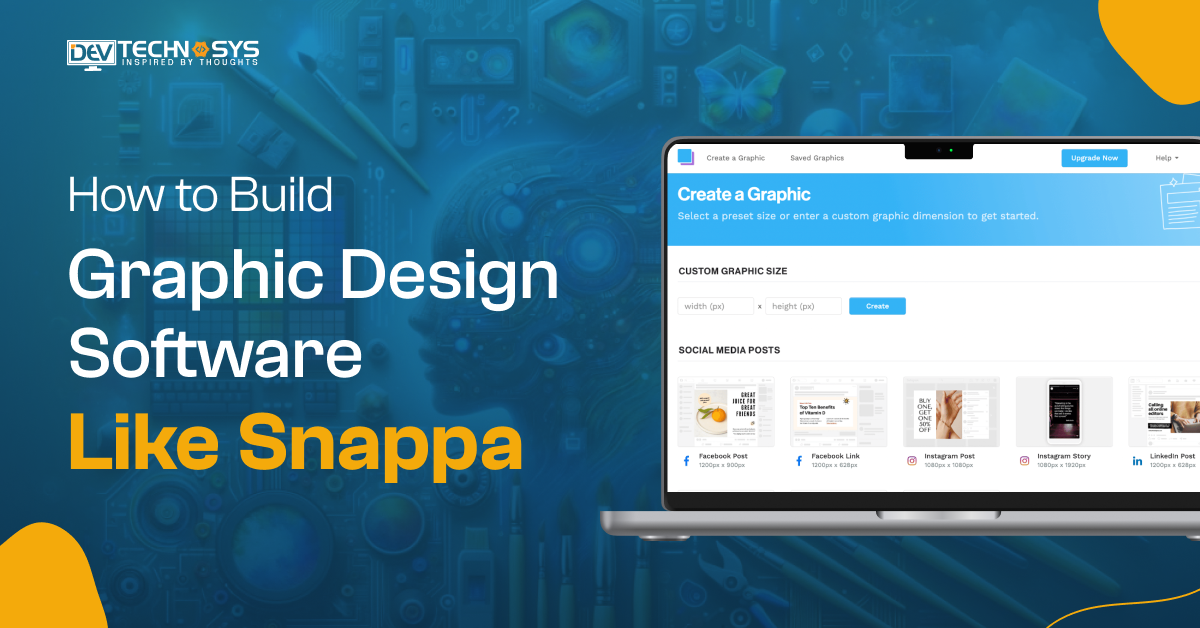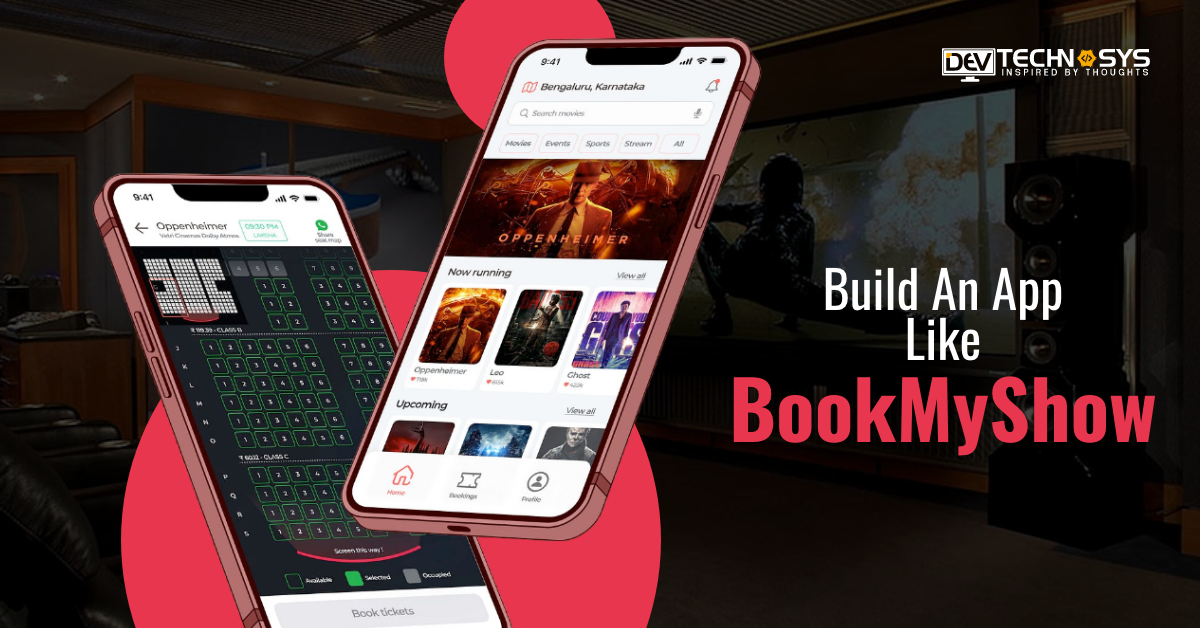“I believe that artificial intelligence in sports will not replace human intelligence, but it will empower it, making athletes and teams smarter and more competitive.”
– Kobe Bryant
Artificial Intelligence has revolutionized the way people perceive and interact with sports. Data-driven insights can provide a range of benefits, from improved performance analysis to injury prevention and customized training programs for athletes. AI-driven technologies, such as computer vision or predictive analytics, have helped coaches and teams make better decisions.
They can now optimize strategies and select players. These rewards come with a price. AI implementation requires substantial investments in technology and data collection. It also involves the acquisition of talent. There are also ethical concerns about data privacy and AI’s potential to replace human judgment in crucial aspects of a game.
As the sports industry continues to develop in the AI-powered age, it will be important to balance the costs and benefits of AI in the sports industry.
Table of Contents
Current Market Statistics To Consider!
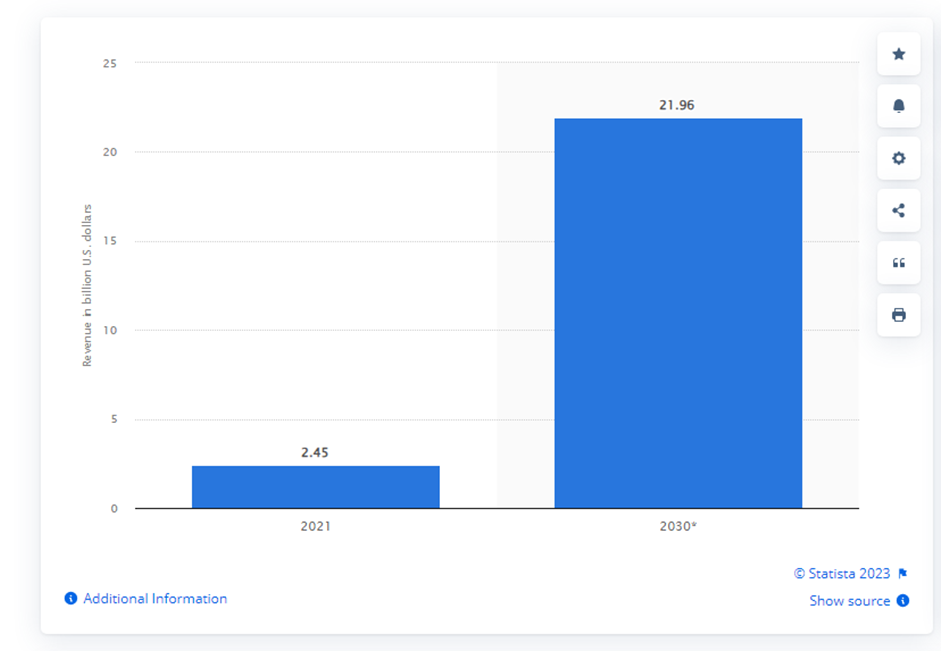
- The global AI in sports industry is projected to grow from 518.8 million in 2022 to 4.3 billion dollars by 2028 at a CAGR of 42.3% over the forecast period.
- By 2030, the global impact of AI on is expected to reach $19.9 Billion.
- Global sports analytics is expected to grow at a rate of 27.3 percent per year between 2021 and 3031.
- The market is expected to grow from 2.45 billion U.S. Dollars in 2021 to almost 22 billion U.S. Dollars by 2030.
- By 2026, it is estimated that 400 million sports-related wearable devices will be shipped.
What Are the Benefits of AI in Sports Industry?
Artificial Intelligence has become a powerful force in many industries. The sports industry is not an exception. AI in sports industry has been used in many sports applications, changing the way athletes, teams, and fans view the game.
AI is revolutionizing the sports industry, bringing new opportunities for fantasy sports app development company. We will examine the many benefits of AI for sports in this section. We will highlight its impact on performance and injury prevention, as well as fan engagement and revenue generation.
1. Performance Analysis and Enhancement
AI’s ability to enhance and analyze athletic performance is one of the biggest benefits of AI. AI-powered tools and software allow coaches and athletes valuable insight into their performance.
- Data-driven decision-making:
AI algorithms can analyze vast amounts of data, including video footage and wearable devices, to produce real-time insights. Coaches are able to make data-driven choices regarding player positioning, tactics, and game strategy.
- Biomechanical Analysis:
AI can identify and correct flaws in an athlete’s technique by analyzing the movements. It is particularly useful in sports such as golf and tennis, where exact technique is essential.
- Injury Prevention:
AI can analyze an athlete’s performance and physical condition to predict the likelihood of injury. It allows proactive measures to be taken, such as customized training programs and rest intervals.
- Performance Optimization:
AI can optimize training programs by identifying the strengths and weaknesses of an athlete. This results in more effective workouts that focus on specific areas of improvement.
2. Injury Prevention and Rehabilitation
AI in sports industry injury prevention and rehabilitation is a major concern. AI has several benefits in this regard which will make you create an AI App for sports.
- Predictive Analysis:
AI can analyze an athlete’s biomechanics and physical condition to predict injury risk. It allows teams to take proactive steps to reduce the likelihood of injury.
- Personalized Rehabilitation:
AI in sports industry can create personalized rehab plans for injured athletes. AI can accelerate the recovery process by monitoring progress and making adjustments as necessary.
- Load Management:
AI in sports analytics can help teams manage their workload, prevent overtraining, and reduce the risk of injury due to overuse.
- Injury Tracking:
AI systems track the recovery of an athlete in real-time, which allows medical staff to make an informed decision about when they can safely return an athlete to play.
3. Fan Engagement and Experience
AI has changed the way sports fans interact with their favorite teams. AI can enhance the fan experience in several ways which has increased the demand to build a sports betting apps like Betway.
- Content Personalized:
AI in sports industry algorithms analyze fan preference, viewing history, and social media activity and deliver personalized Content such as recommended articles, highlights, or games.
- Real-time Updates:
AI-powered chatbots, mobile apps, and other tools provide instant updates on game scores, statistics, events, and more. Fans can easily stay in touch with their favorite players and teams.
- Enhanced Viewing:
Camera systems that are AI-driven capture important moments and angles in games. It provides viewers with an immersive and engaging experience. It is especially valuable for virtual reality and augmented-reality applications.
- Fantasy Sports:
AI in sports industry algorithms help in creating and managing Fantasy Sports teams. It makes it easier for the fans to take part and enjoy the competition.
4. Revenue Generation
Generative AI in sports has created new revenue streams for businesses and sports organizations.
- Sponsorships and Advertising:
AI in sports industry can help teams and brands find the best sponsorship opportunities and also target the right audience to advertise. Sponsors get a better return on their investment.
- Tickets and Pricing:
AI algorithms can analyze historical information, demand AI trends and competitor pricing in order to optimize pricing and ticket sales strategies. It will ensure that stadiums remain full and maximize revenue.
- Merchandise Sales:
Fans are more likely than ever to buy items that match their preferences when AI-driven marketing and recommendations are used.
- Predictive Analytics:
AI can forecast future trends and fan behavior, allowing organizations to adjust their revenue generation strategies accordingly.
5. Referee Assistance
AI is being used more and more to help referees make accurate decisions in games.
- Video Assistance:
AI can analyze video footage quickly to identify fouls, situations of offside, and other rules violations. Referees can make better decisions with this information.
- Goal-line Technology:
AI-powered goal-line technology determines if the ball has crossed over the line. It eliminates controversies about disputed goals.
- Instant Replays:
Instant replays are possible with AI, which allows officials to accurately review crucial moments during a match and make correct decisions.
6. Data-Driven Insights and Strategy
AI gives teams and coaches access to advanced data analytics, predictive modeling, and AI:
- Game Strategy:
Use of AI in sports can analyze data from opponents to give insights into their strengths and weaknesses. It helps teams create effective game strategies.
- Recruitment of Players:
AI can help identify talented players and assist with scouting by analyzing player statistics and performance information from different sources.
- Performance Metrics:
AI-generated metrics give coaches and players a deeper understanding of team and individual performance. It allows them to improve training and tactics.
- Tactical Analysis:
AI can be used to break down footage of games into smaller data sets, which allows teams to analyze tactical decisions more closely and make necessary adjustments.
How Much Does It Cost to Build AI Sports App?
Costs to create a mobile app can vary widely depending on several factors. The complexity of the app and the features it contains, as well as the level of AI integration or the location of the machine learning app development company, are all factors that can affect the cost.
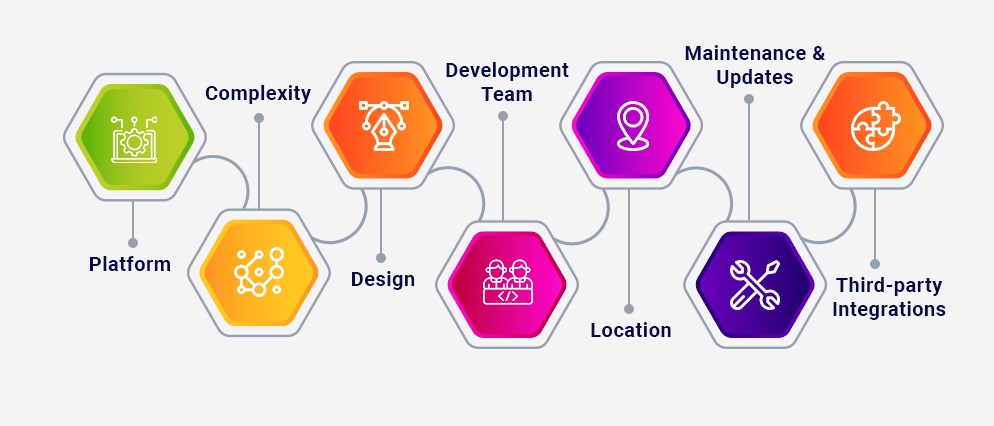
Here, we will outline the main factors that affect the creation of an AI App for sports and provide a summary table of estimated costs:
1. App Complexity
The complexity of the app will result in the impact of AI development costs. Apps with fewer features are cheaper, while apps with AI capabilities and advanced features will increase the fantasy sports website development cost.
2. Features and Functionalities
The cost of developing an app increase as you add more features. Adding features such as live streaming, real-time statistics, and personalized recommendations will increase the cost to build fantasy sports mobile apps.
3. AI Integration
The level of AI in sports industry will drive costs. Costly can be developing AI algorithms for player analysis, injury prediction, or game simulations. Pre-built AI may be less expensive.
4. Platform
The cost to build a sports betting apps like Betway for multiple platforms will be higher than if it was developed only for one platform (iOS or Android).
5. Data Sources
It is vital to know that Subscription fees and licensing costs may apply to APIs or real-time data feeds as it requires hiring a sports betting app development company.
6. User Interface (UI) and User Experience (UX)
User Interface (UI) and User Experience (UX) are two terms that describe the interfaces of a computer system. It can be expensive to design a visually appealing and intuitive UI/UX. A well-designed application can increase user engagement, but it may also require a larger budget.
7. Location of the Development Team
The location of your fantasy sports app development company has a significant impact on costs. The location of your AI development Company can have a significant impact on costs.
8. Testing and Quality Assurance
It is important to ensure that your app works correctly and is free of bugs. The cost of testing and quality assurance will increase.
9. Security
It is important to implement robust security measures in order to protect user data as well as app functionality. It may increase the overall cost of sports betting app development.
10. Maintenance and Updates
Additional costs include ongoing maintenance and updates that keep your app up-to-date and secure.
Factor |
Estimated Cost Range |
| Basic AI sports app (single platform) | $8,000 – $20,000 |
| Complex AI sports app (multi-platform) | $20,000 – $40,000 |
| Advanced AI integration (custom algorithms) | $40,000 – $60,000 |
| Real-time statistics and data integration | $8,000 – $18,000 |
| UI/UX design and development | $9,000 – $17,000 |
| Data sources (licensing fees) | Variable |
| Development team location | Varies by region |
| Testing and quality assurance | $10,000 – $15,000 |
| Security measures | $5,000 – $20,000 |
| Maintenance and updates (annual) | 20-30% of initial cost |
These are only rough estimates however the cost to develop a mobile app for sports with AI integration might cost you around $8,000 to $20,000. Get in touch with the best mobile app development company.
They can change a lot depending on the project and the team’s expertise. Consult with an IoT app development company to get an accurate estimate. Budgeting for AI in the sports industry should also include ongoing server costs, marketing expenses, and licensing fees for data sources.
The Future of AI in the Sports Industry: What to Expect
The AI in sports industry has always led the way in adopting new technology to improve performance, engage fans, and enhance the overall experience. Artificial Intelligence has been a game-changer in sports over the past few years.
Looking ahead, AI will continue to play a pivotal role in shaping the future of AI in sports. This section examines what to expect from AI in sports in the next few years.
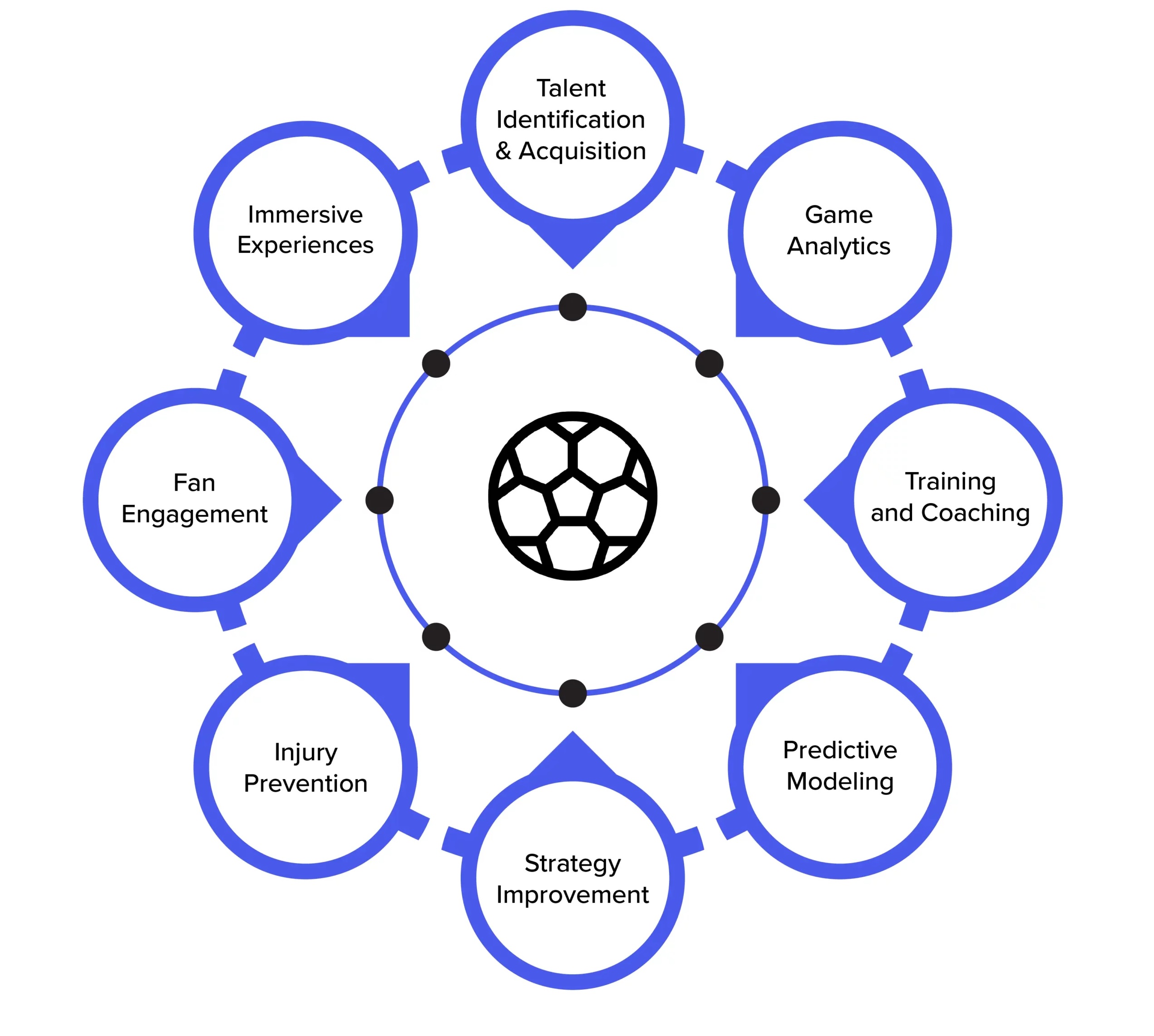
1. Performance Enhancement
AI in sports industry is revolutionizing how athletes train and compete. AI-driven analytics is one of the most important developments in this field. AI in sports industry is now being used by sports teams and athletes to analyze large amounts of data, including biometrics and game statistics. This data-driven method allows coaches to make educated decisions about player selection, strategy, and training programs.
AI-powered tracking systems, for example, can provide real-time information on player movement and positioning in soccer. This data helps teams to identify patterns and devise tactics that exploit the weaknesses of their opponents.
In basketball, AI is able to analyze shooting trajectories and make suggestions for improving accuracy. AI in sports industry is also being used for designing personalized training programs. Get in touch with the best AI development services providers to know more about.
Machine learning algorithms analyze biomechanics and performance data to create personalized workouts and recovery programs. This personalized approach to training can result in significant improvements in performance and injury prevention.
2. Fan Engagement
AI in sports industry also transforms the way sports fans interact with them. Virtual Reality (VR), Augmented Reality, and AI-powered experiences are becoming more common. Fans can watch matches in 360-degree immersive VR environments or use AR apps for real-time statistics during matches.
AI-driven virtual assistants and chatbots enhance the fan experience with personalized recommendations, answers to questions, and real-time updates. These chatbots are able to engage fans on social networks, provide ticket info, and even provide in-game commentary.
AI in sports industry is also playing an important role in content production. Automated video highlight generators can sort through hours of footage and produce compelling highlights in real-time. It saves time and ensures fans see the most exciting moments immediately after they occur.
3. Damage Mitigation
Athletes and teams place a high priority on injury prevention. AI in sports industry is an essential tool for this. Machine learning models analyze biomechanics, movement patterns, and other factors to identify potential injury risks.
Teams can reduce injury risks by implementing targeted training and rehab programs early. Wearable devices such as smart shirts, sensors, and other wearables are also becoming more popular. These devices gather real-time information on the vital signs and physical condition of an athlete.
So if you’re someone interested in building an AI sports app by witnessing the growth and success ratio of artificial intelligence in sports industry then it is crucial to get in touch with the best developers to learn the AI based fantasy sports website development cost.
AI algorithms analyze the data and determine an athlete’s level of fatigue. AI in sports industry recommends rest or adjusting training intensity.
4. Fair Play and Refereeing
AI can be used to resolve disputes relating to fair play and refereeing. In various sports, Video Assistant Referees have been used to review crucial decisions. AI-powered cameras, computer vision algorithms, and multiple camera angles can be quickly analyzed to give referees accurate information when making decisions about goals, fouls, and offside.
AI in sports industry can also detect instances of doping or cheating. Machine learning algorithms can analyze an athlete’s performance data and flag any anomalies that may indicate the use of performance-enhancing drugs. It helps to maintain the integrity and fairness of sport but also serves as a deterrent for cheating.
5. Data-Driven Sports Management
AI is revolutionizing the business and management side of sports organizations. AI-powered predictive analytics can help leagues and teams make informed decisions on player acquisition, ticket pricing, and engagement strategies.
AI, for example, can forecast player performances, allowing teams to make data-driven transfer market decisions. If you are interest in sports management then you should start fantasy sports business with mobile app.
AI also optimizes stadium operations. Intelligent stadiums with AI-driven systems are able to manage crowd flow and parking more efficiently. It improves both the fan experience and generates revenue for teams.
6. AI and eSports
AI and eSports are a fascinating combination. Artificial intelligence-powered bots, or virtual players, are being created to compete with human players in video games. These bots not only challenge but are also continually learning and improving. They make formidable opponents. AI is used to analyze professional eSports games and give insights to players.
7. Ethical and Privacy Concerns
Ethics and privacy issues must be addressed as AI is increasingly integrated into the sports industry. Data security, consent, and misuse are raised by the collection and analysis of data from players and fans. Sports organizations must implement robust data protection measures and ensure transparency in their AI applications.
Moreover, there are ethical concerns regarding the use of AI in sports betting, such as the potential for biased algorithms in player evaluations and scouting. It is important to ensure fairness and equality in AI applications.
In A Nutshell!
The benefits of AI in the sports industry are immense. AI improves performance, engages the fans, and prevents injury. It improves team management, fairness, and the fan experience. These advantages are not free.
They come at a cost that varies based on the complexity, features, and AI integration. AI has tremendous potential, but careful planning and budgeting are essential to maximize its potential. Hire mobile app developers if you are one of the people who wants to build AI in the sports industry with massive integration.
Frequently Asked Questions
Q1. How Much Does It Cost to Build an AI Sports App?
The cost to create a mobile app vary widely, depending on features and complexity. It can range from $10,000 to $40,000 or more, considering development, AI integration, and ongoing maintenance.
Q2. How Long Does It Take to Build an AI Sports App?
Building an AI sports app typically takes 6 to 12 months. The timeline depends on the project scope, features, and development resources.
Q3. What Are the Benefits of Investing in AI Sports App?
Investing in an AI sports app can improve user engagement, enhance player performance analysis, provide personalized experiences, and generate revenue through in-app advertising, sponsorships, and premium content.
Q4. Why You Should Choose Dev Technosys for Building AI Sports App?
Dev Technosys is a leading mobile app development company and a top choice for building AI sports apps due to our expertise in AI development, a proven track record in sports technology, and a commitment to client satisfaction.
Q5. What Are the Popular AI Sports Apps?
Popular AI sports apps include Strava for tracking athletic activities, Hudl for sports video analysis, and Catapult Sports for performance monitoring. These apps cater to athletes, coaches, and sports enthusiasts.

